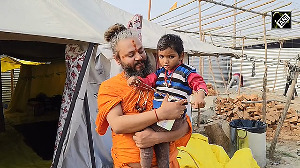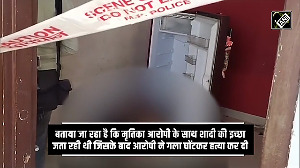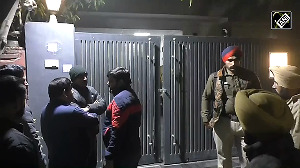As negotiators from across the world resume multilateral trade talks in Geneva today, India has asked the developed countries to cut their farm subsidies and remove distortions in the global agricultural commerce.
"We do hope that developed countries will provide a leadership role and not thwart the process of Doha negotiations," Commerce and Industry Minister Kamal Nath said.
India has already sent its team of officials to negotiate on agricultural subsidies, which would be followed by talks on industrial tariffs or Non-Agricultural Market Access.
The World Trade Organisation had circulated separate drafts on agriculture and NAMA prepared by respective chairs -- Crawford Falconer and Don Stephenson -- on July 17. The new proposal of NAMA envisages European Union cutting its highest tariffs by as much as 73 per cent as against its offer of 70 per cent.
It also requires India to lower duties on industrial products to an average of about 12 per cent.
WTO mediators have also proposed that US farm subsidies be capped at $16.4 billion, compared to $17 billion that Washington has offered. The EU would have to cut its farm import tariffs by about 64 per cent.
Nath had described the agriculture draft as a "good basis for further negotiations". He said while industrial goods were not so much a problem, "the real problem is agricultural subsidies".
The NAMA text has been rejected by 110 nations at the WTO for being "fundamentally flawed and biased". The present round of talks at Geneva is expected to go on till mid-October. The Doha Round of negotiations, launched in the Qatari capital in 2001, had to conclude by the end of 2004 but has missed several deadlines.






 © 2025
© 2025